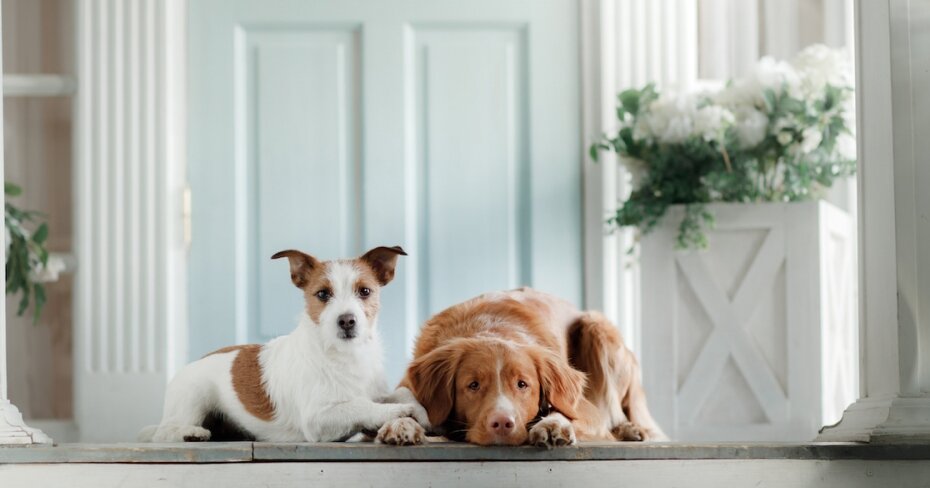How do different dog breeds affect your home insurance?
By: Courtney Shea on April 29, 2020
Becoming a parent to a fur baby is a big decision that brings with it certain adjustments: there’s pup-proofing your pad, stocking up on Scooby snacks and — before you forget — updating your home insurance policy.
“It’s something a lot of people don’t think of,” says Pete Karageorgos, director of consumer relations with the Insurance Bureau of Canada. “But the reality is that when you bring home a dog, you are taking on a new liability, and if something happens and you’re not covered, you’re going to wish you had done it sooner.”
By something, he means if your dog bites someone. This is by far the most common claim made by dog owners — and not a cheap one, either. In 2012, State Farm paid out $108 million in liability claims related to dog bites in Canada. A number like that explains why dogs are relevant to a home insurance policy, while, say, cats aren’t.
According to the Humane Society of Canada, dog bites occur approximately once every 60 seconds, and according to the CDC, about one-fifth of nips are serious enough to require medical attention. (Cat bites, on the other hand, while considered more dangerous, are far less common.) “Damage could lead to a claim and a lawsuit for injuries against the owner,” says Karageorgos, sometimes in the $20,000 to $30,000 range. It could also lead to higher premiums for the dog owner.
Applying for home insurance with a dog
Almost any home insurance application will ask if you have an animal in your home. (Lying about this could nullify your policy, so obviously — don’t.) There may be follow-up questions around your dog’s size, age, as well as any history of previous violence and breed. “A lot of [insurance] companies have lists of the breeds that are considered problematic,” says Karageorgos, meaning either they won’t include those dogs on a policy, or the policy will cost more. In the event the homeowner gets a new pet, he says, but doesn’t inform their insurance company, providers can cancel or deny renewal of an existing policy.
“A policy is a contract,” says Karageorgos, “and if the terms change, the provider has every right to renegotiate.”
Examples of ‘dangerous’ breeds
There is variety from one home insurance provider to the next, but the list of breeds likely to cause a problem includes: Rottweilers, Dobermans, Great Danes, Staffordshire Terriers, German Shepherds, Siberian Huskies and, of course, Pit Bulls, which are currently banned in the province of Ontario. These bans have been extremely contentious with many pro-Pit Bull advocates, who argue that dogs are as good as their owners and that an ill-tempered or untrained Shih Tzu poses a bigger threat.
This may be true (the Humane Society supports a repeal of the ban and there is a lot of debate around whether Pit Bulls are actually responsible for more injuries than other breeds). However, from an insurance provider’s point of view, there is another angle to consider. “Because of the public myth or belief about this particular breed of dog, an injured person might be more likely to sue the owner,” says Heather Mack, a director at IBC.
On the flipside, Fido can get points for good behaviour. Many policy providers will take any training or a positive reference from your vet into account. In some cases, a representative from the insurance company may make an at-home visit to complete their own assessment. Insurers may exercise this same discretion around less common domestic critters, such as birds and snakes, but will never insure illegal pets, such as monkeys or exotic cats.
Make liability your priority
To avoid having to pay for claims out of your own pocket, homeowners and renters need to find the right policy.
In order to make sure you’re covered in the event that your dog injures someone on your property, most experts recommend that pet owners look for a policy with liability coverage in the $100,000 range, with $1,000 for no-fault medical costs.
This could include upping your liability limit or even purchasing an umbrella policy for additional coverage, which may sound like big bucks for man’s best friend, but keep in mind that it’s a competitive market out there. A little home insurance comparison shopping could be well woof the effort.


